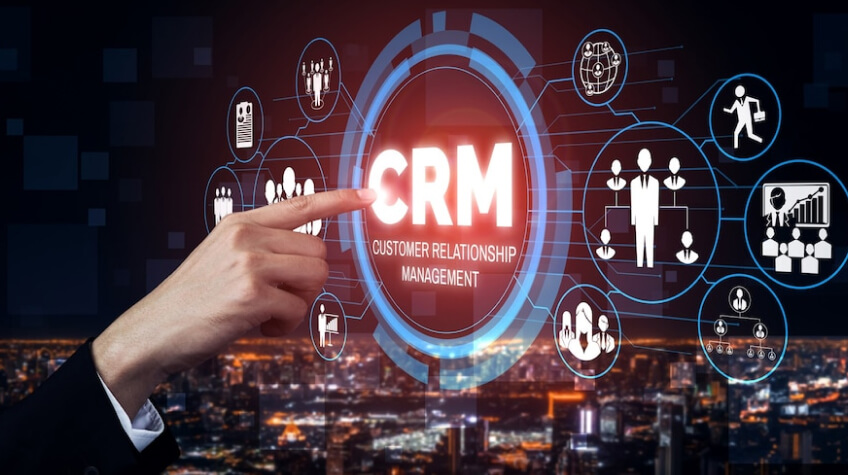
The world of Customer Relationship Management (CRM) has evolved significantly over the years, and technology has played a crucial role in this evolution. With technological advancements, CRM estimating cost has become more accessible and more accurate. Technology has enabled businesses to automate various aspects of the estimating process, making it faster and more efficient.
In this blog post, we’ll explore the impact of technology on CRM estimating, looking at how businesses can leverage technology to improve their estimating process. We’ll discuss the benefits of using advanced technologies, such as machine learning and artificial intelligence, to enhance the accuracy of estimates.
By the end of this post, you’ll have a better understanding of how technology is transforming CRM estimating and how businesses can stay ahead of the curve by adopting the latest technologies.
Main Impact of Technology on CRM Estimating
Technological advancements have revolutionized the way marketing and advertising agencies interact with customers through CRM systems. Automation, personalization, and valuable insights into customer behavior are some key benefits that technology has brought to CRM estimating. As a result, businesses can better anticipate their customers’ needs while increasing satisfaction levels.
Automation Streamlining Processes for Improved Workflow
In today’s hectic corporate world, productivity is essential. With the help of advanced marketing automation features in modern CRM software, agencies can streamline various processes such as lead management, email campaigns, and follow-ups. This not only saves time but also ensures consistency across all customer interactions.
- Sales representatives: By automating repetitive tasks like data entry or scheduling follow-up calls, sales staff can focus more on building relationships with potential customers.
- Marketing teams: Marketing automation allows marketers to create targeted campaigns based on customer data gathered from multiple sources like purchase records or website activity logs.
- Potential customers: Automated responses ensure that prospects receive timely information about products/services they’re interested in without any delays due to manual intervention by sales staff.
Personalizing Communication Channels for Enhanced Customer Experience
A personalized approach goes a long way when it comes to establishing strong connections with clients. Modern CRMs offer several tools that enable businesses to customize their communication channels according to an individual preferences of each client segment, thereby enhancing overall experience.
- Cloud CRM: Cloud-based CRM solutions provide real-time access to customer information, allowing sales representatives and marketing teams to tailor their interactions based on the latest data available.
- Customer retention: Personalized communication helps fostering a sense of loyalty among clients by addressing their specific needs and concerns effectively. This ultimately leads to higher retention rates for businesses and advanced agency CRM can help with that.
- Sales cycle optimization: By understanding individual preferences through detailed analysis of customer data, agencies can fine-tune their sales processes to cater better to each client’s unique requirements, thereby shortening the overall sales cycle duration.
Incorporating technology into your agency’s CRM estimating process not only streamlines workflow but also enhances customer satisfaction levels by providing personalized experiences tailored specifically for them. As we continue embracing new advancements, it is essential to stay ahead of the curve and adapt to these changes in order to remain competitive in the industry landscape.
Technology has revolutionized the way CRM estimating is done, allowing for improved workflow and a better customer experience. As technology continues to advance, we can expect to see more integrations with email marketing platforms and increased use of AI-powered analytics features in CRM estimating processes.
Maximizing Benefits from Advanced Analytics Features in CRM Estimating
Harnessing advanced analytics features provided by modern CRM systems enables marketers to gain a deeper understanding of market trends and preferences, ultimately leading to the creation of targeted campaigns that yield higher returns on investment. This data-driven approach allows agencies not only to organize but also analyze vast amounts of customer information gleaned from both online and offline sources.
Creation of Targeted Campaigns Based on Accurate Data-Driven Insights
To create effective marketing campaigns, it is essential for businesses to have access to accurate and comprehensive customer data. With CRM software’s advanced analytics capabilities, marketing teams can easily segment their audience based on various factors such as demographics, purchase history, or browsing behavior. This helps them tailor their messaging accordingly and deliver personalized content that resonates with potential customers.
- Email Marketing: By integrating your CRM system with email marketing platforms, you can automate the process of sending relevant emails at the right time using behavioral triggers.
- Social Media Advertising: Utilize your CRM’s social media integration feature to create highly targeted ads that reach specific audiences across platforms like Facebook or LinkedIn.
- Landing Page Optimization: Use insights gathered from your CRM data analysis tools for A/B testing different landing page variations in order to optimize conversion rates.
Read More: Best Tips for Hiring CRM Developers in Today’s Market
Analyzing Market Trends/Preferences Using Powerful Analytics Tools
In addition to helping you build targeted campaigns, advanced analytics features within modern CRMs also enable businesses to stay ahead of market trends and preferences. By analyzing customer data, agencies can identify patterns in consumer behavior that may indicate emerging opportunities or potential threats.
A CRM user may detect a correlation between customers who obtained Product A and the probability of them obtaining Product B within half a year. This insight could be used to develop cross-selling strategies or even inform product development decisions.
Moreover, some CRM solutions offer AI-powered analytics features that can automatically generate predictions based on historical data and current trends. These solutions enable companies to take informed action on their advertising and sales operations while remaining adaptable in a continuously evolving market.
The advanced analytics features in CRMs provide an invaluable tool to marketing and advertising agencies, allowing them to create targeted campaigns based on accurate data-driven insights. Automating routine tasks using modern CRMs is another way for these agencies to increase their efficiency and maximize the benefits of a powerful customer relationship management system.
Conclusion
In conclusion, technology has had a significant impact on CRM estimating, making the process more accessible, efficient, and accurate. Advanced technologies, such as artificial intelligence, machine learning, and automation, have enabled businesses to streamline their estimating process, saving time and resources.
Technology has also improved the accuracy of estimates, making it easier for businesses to make informed decisions about their CRM system. As technology continues to evolve, businesses must stay ahead of the curve by adopting the latest technologies and leveraging them to improve their CRM estimating process. By doing so, businesses can unlock the full potential of their CRM system and achieve long-term success.






